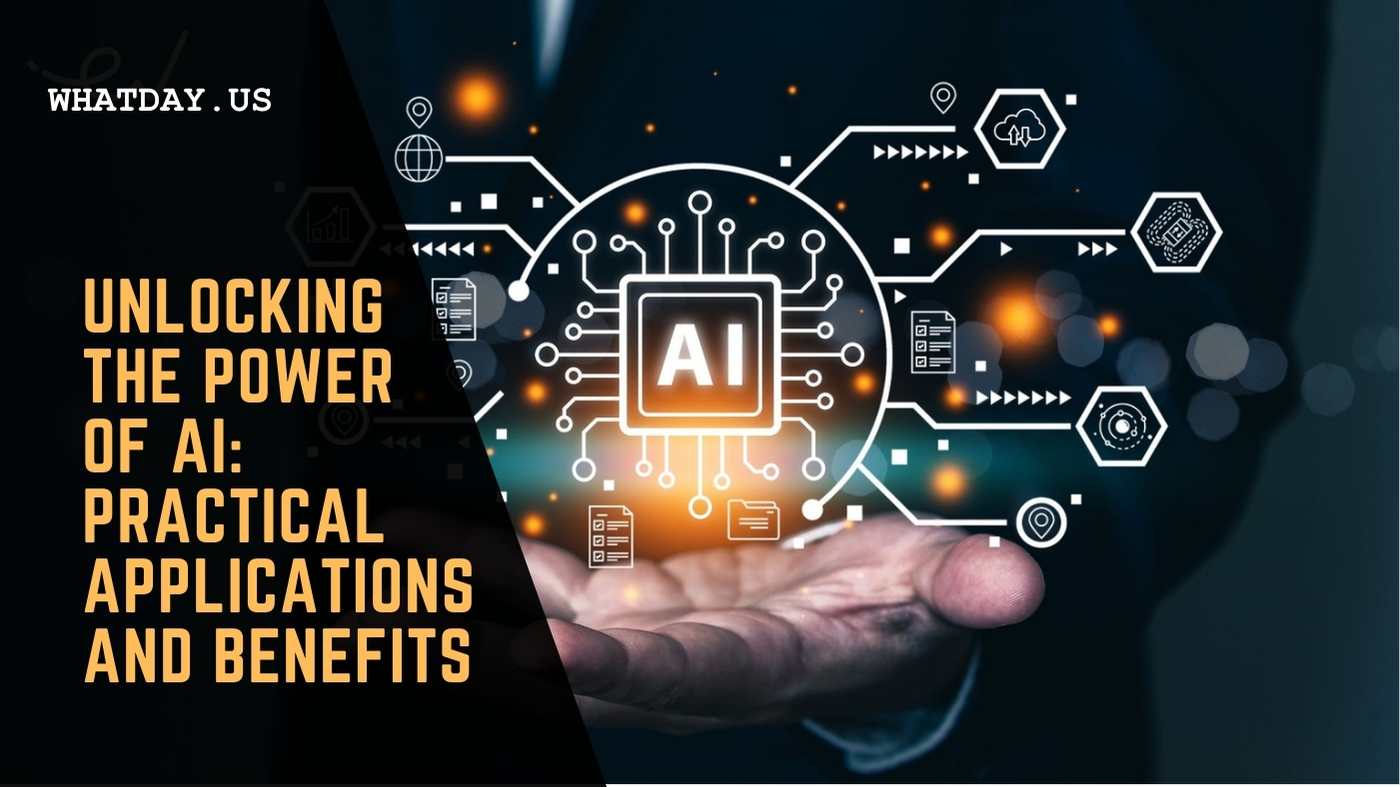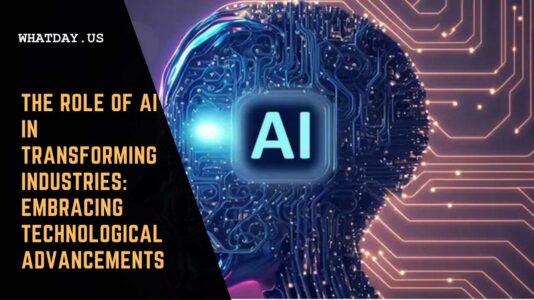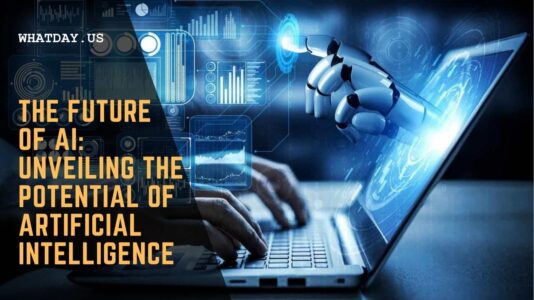1. Automation and Efficiency
One of the most significant benefits of AI is its ability to automate repetitive and time-consuming tasks. AI-powered systems can handle large volumes of data, analyze patterns, and make informed decisions, freeing up human workers to focus on more strategic and creative endeavors. This automation leads to increased efficiency, productivity, and cost savings across various sectors, including manufacturing, healthcare, finance, and customer service.
Practical Applications:
- Manufacturing: AI-driven robots perform welding, assembly, and quality control tasks, improving production efficiency and reducing errors.
- Healthcare: AI-powered systems analyze medical images, assist in diagnoses, and provide personalized treatment recommendations, leading to improved patient outcomes.
- Finance: AI-enabled algorithms assess creditworthiness, detect fraudulent transactions, and optimize investment portfolios, enhancing financial operations.
- Customer Service: AI-powered chatbots and virtual assistants handle customer inquiries, resolve issues, and provide 24/7 support, improving customer satisfaction.
2. Data Analysis and Insights
AI’s ability to process and analyze vast amounts of data has revolutionized decision-making. AI-powered algorithms sift through structured and unstructured data, identifying patterns, extracting insights, and making predictions. This data-driven approach helps businesses, governments, and organizations make informed decisions, optimize operations, and mitigate risks.
Practical Applications:
- Retail: AI-driven systems analyze customer behavior, preferences, and trends, enabling businesses to personalize marketing campaigns, optimize product recommendations, and predict demand.
- Healthcare: AI-powered algorithms analyze patient data to identify high-risk individuals, predict disease outbreaks, and develop personalized treatment plans.
- Finance: AI-enabled systems assess market trends, analyze financial performance, and predict economic indicators, assisting investors and financial institutions in making informed decisions.
- Energy: AI-driven algorithms optimize energy distribution, predict energy consumption, and identify renewable energy sources, improving grid stability and efficiency.
3. Improved Customer Experience
AI has become a powerful tool for enhancing customer experience. AI-powered systems provide personalized recommendations, offer real-time support, and resolve issues quickly and efficiently. This leads to increased customer satisfaction, loyalty, and brand reputation.
Practical Applications:
- Retail: AI-driven systems analyze customer purchase history, preferences, and online behavior to provide personalized product recommendations, improving the shopping experience.
- Travel: AI-powered chatbots assist travelers with booking flights, hotels, and rental cars, providing 24/7 support and resolving issues promptly.
- Healthcare: AI-enabled systems analyze patient data and provide personalized treatment recommendations, improving patient outcomes and satisfaction.
- Banking: AI-powered virtual assistants handle customer inquiries, resolve issues, and provide financial advice, enhancing customer interactions.
4. Enhanced Decision-Making
AI’s ability to analyze vast amounts of data, identify patterns, and make predictions has significantly improved decision-making processes. AI-powered systems provide data-driven insights, helping leaders make informed decisions, optimize strategies, and mitigate risks.
Practical Applications:
- Business: AI-enabled systems analyze market trends, customer behavior, and financial data to provide insights for strategic decision-making, product development, and investment planning.
- Government: AI-powered algorithms analyze crime patterns, traffic flow, and public opinion to assist policymakers in making evidence-based decisions, and improving public safety and infrastructure.
- Healthcare: AI-driven systems analyze patient data, medical literature, and clinical trials to provide personalized treatment recommendations and assist doctors in making accurate diagnoses.
- Finance: AI-enabled algorithms analyze market data, economic indicators, and financial performance to provide insights for investment decisions, risk management, and portfolio optimization.
5. Innovation and Creativity
AI is not just about automation and efficiency; it can also be a powerful tool for innovation and creativity. AI-powered systems can generate new ideas, explore uncharted territories, and create unique solutions that humans may not have conceived.
Practical Applications:
- Art and Music: AI-driven systems create unique artwork, compose music, and generate creative content, pushing the boundaries of artistic expression.
- Product Design: AI-enabled algorithms analyze customer feedback, market trends, and design principles to generate innovative product designs that meet customer needs and preferences.
- Scientific Research: AI-powered systems analyze vast amounts of scientific data, identify patterns, and formulate hypotheses, accelerating scientific discovery and innovation.
- Education: AI-driven platforms provide personalized learning experiences, offer real-time feedback, and adapt to individual learning styles, enhancing the educational process.
Conclusion
AI has undoubtedly transformed our world, offering practical applications and benefits across diverse industries. From automating tasks and analyzing data to enhancing customer experience and driving innovation, AI has the potential to revolutionize every aspect of our lives. As AI continues to advance, we can expect even more groundbreaking applications and benefits that will shape our future. However, it is crucial to use this technology responsibly and ethically, ensuring that it serves humanity and addresses global challenges. Embracing the power of AI, while addressing potential risks and biases, will pave the way for a brighter and more sustainable future.
FAQs
1. Is AI a threat to human jobs?
AI will likely transform the job market, but it is unlikely to replace human workers entirely. Instead, AI is expected to augment human capabilities, enabling us to focus on more strategic and creative endeavors.
2. How can we ensure the ethical and responsible use of AI?
Fostering transparency, accountability, and fairness in AI systems is crucial. Establishing ethical guidelines, promoting diversity in AI development teams, and addressing potential biases are essential steps towards responsible AI.
3. What are the limitations of AI?
AI systems are limited by the data they are trained on and may struggle to generalize beyond the specific context they were designed for. Additionally, AI systems lack human creativity, emotional intelligence, and the ability to make value judgments.
4. What is the future of AI?
The future of AI is bright, with continued advancements in machine learning, natural language processing, and computer vision. We can expect AI to become more integrated into our lives, assisting us in various tasks and solving complex problems.
5. How can individuals prepare for the impact of AI on their careers?
Upskilling in areas such as data analysis, programming, and AI ethics can help individuals adapt to the changing job landscape and thrive in the AI-driven economy. Continuous learning and embracing new technologies will be essential.




